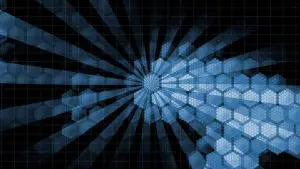A recent theoretical study by a University of Waterloo doctoral candidate in nanotechnology engineering suggests that manufacturers may one day make lasers and LEDs out of silicon, a cheaper material with greater thermal conductivity. Silicon is not currently used in LEDs or lasers because of its indirect bandgap, which hinders light emission. The new research suggests, … [Read more...]
Recruitment Agency Offers Tips for Young Engineers
Young engineers can improve prospects by becoming professionally registered, advises recruitment specialist As the employment market for graduate engineers with limited experience becomes increasingly competitive, young engineering candidates need to offer more than a degree to ensure a successful application. According to Jonathan Lee Recruitment, an engineer who is … [Read more...]
New Technique for Making Brighter, Cooler LEDS
A new technique for making brighter and cooler LEDs has taken the first leap from research laboratory to market. The new manufacturing system, called liquid forging, dramatically improves the way tiny electronic devices keep cool with a thermal conductivity double that of conventional techniques such as casting. The liquid-forging method was developed by A*STAR’s Singapore … [Read more...]
Computer Heat Sink Company Licenses Fan-less Cooler Technology
Sandia National Laboratories announced that their Sandia Cooling technology has been licensed by two companies, bringing the Sandia Cooler heat sink much closer to the production phase. According to the company, the redesigned architecture for the air-cooled heat exchanger "simultaneously eliminates all three drawbacks of conventional air-cooled heat exchanger … [Read more...]
Changes in Surface Texture Double Heat Dissipation
Researchers at MIT have found that relatively simple, microscale roughening of a surface can dramatically enhance its transfer of heat by more than doubling the maximum heat dissipation. To test the process, the researchers made a series of postage-stamp-sized silicon wafers with varying degrees of surface roughness. They found that systematically increasing roughness led to a … [Read more...]
- « Previous Page
- 1
- …
- 94
- 95
- 96
- 97
- 98
- …
- 164
- Next Page »







